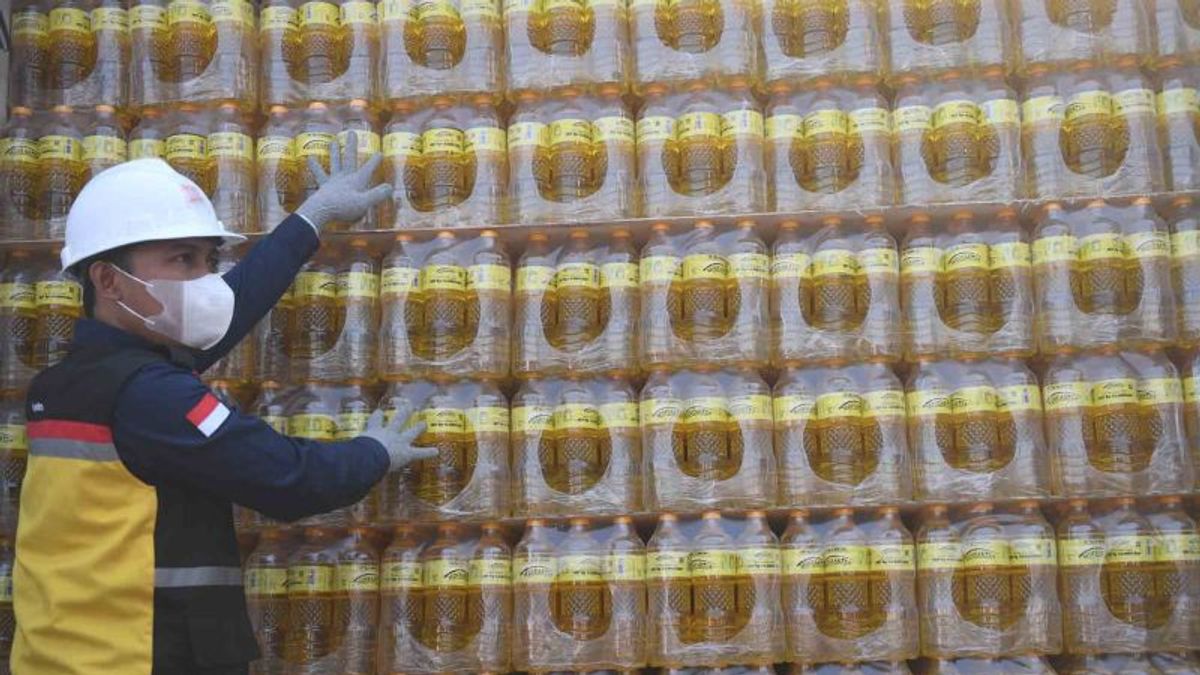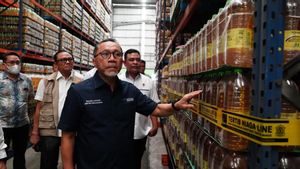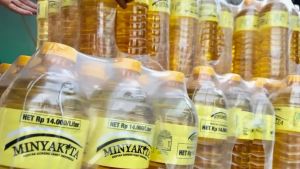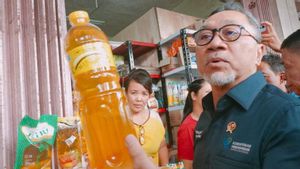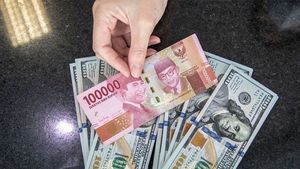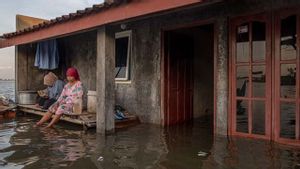JAKARTA - The issue of the scarcity of subsidized cooking oil alias Minyakita in the market is still in the spotlight today.
This is because the government's cooking oil is the most wanted because the price is relatively cheap.
Related to this, the Indonesian Palm Oil Council (DMSI) said that the Minyakita producers themselves were no longer producing.
This was stated by Acting Chairperson of the Indonesian Palm Oil Board, Sahat Sinaga, at a press conference in Jakarta, on Tuesday, 7 February.
"I suspect they are not producing this Minyakita because there is no money (money), nothing from exports either. Yes, because the export has already been deducted by US$142," he said.
Sahat said, Minyakita production did not receive subsidies from the government, so producers had to cover the losses with export earnings.
However, world markets are currently sluggish due to the global recession.
Therefore, Sahat asked the government, especially the Ministry of Finance to temporarily postpone the Export Duty (BK), so that palm oil entrepreneurs would be excited about exporting again and be able to cover their losses in producing Minyakita.
"So, exports should not be hindered, so that they are not hindered, it is necessary to make sacrifices, sacrifices from the Ministry of Finance, namely the current export duty is US$52 per ton, temporarily postponed until this Eid is over," he said.
With the price of palm oil falling and weakening, many entrepreneurs are holding back their palm oil from being exported.
Sahat admitted that there were around six million tonnes of palm oil ready for export, but it was held up due to reasons the world market was weakening, and if it was forced to be exported plus the existence of a BK, entrepreneurs would certainly only suffer losses.
Meanwhile, if the palm oil entrepreneurs do not export, according to him, the entrepreneurs cannot cover their losses from within the country.
As a result, said Sahat, the production of Minyakita was stopped because it could not provide a profit.
"DMO is a concept of conscience. That is, my profits from other places can be shared with domestic subsidies, but this concept is at the same time discriminatory," he said.
SEE ALSO:
Therefore, Sahat advised the government, in this case, the Ministry of Finance (Ministry of Finance) to make sacrifices, namely by temporarily postponing the imposition of existing BK rates.
"The solution is that BK is temporarily zero, for only three months until Eid, so that their export initiative exists. With the global recession, exporters are not enthusiastic about exporting, because 90 US dollars are for PE (BPDPKS export levies), and 50 dollars US for BK," he added.
The English, Chinese, Japanese, Arabic, and French versions are automatically generated by the AI. So there may still be inaccuracies in translating, please always see Indonesian as our main language. (system supported by DigitalSiber.id)
